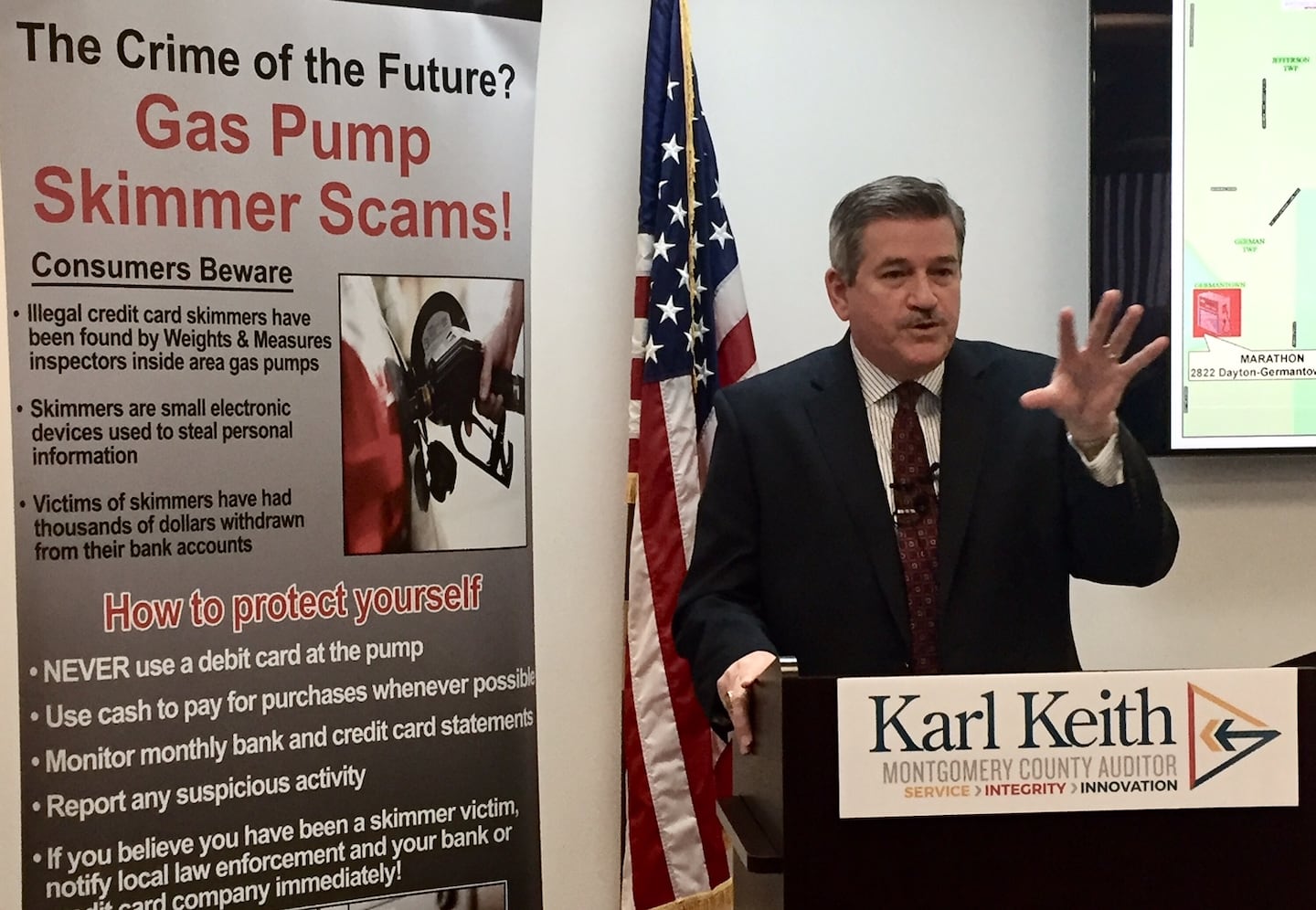MONTGOMERY COUNTY — Five credit card skimmers were found in gas pumps during a sweep of area stations last weekend, according to Montgomery County Auditor Karl Keith.
TRENDING: Rural King fined for forklift violations at local store
This was the first discovery of multiple skimmers at one time since August 2013 and was the most-ever reported in a three-day period in one Ohio county, Keith said during a press conference Tuesday morning.
TRENDING: Ohio included in ice pop recall list for possible listeria contamination
The skimmers were found at stations in Germantown, Miamisburg, Moraine, and West Carrollton, as a part of a larger sweep that covered Butler, Franklin, Greene, Hamilton, Montgomery and Warren counties.
Nearly 800 pumps were checked in 100 separate locations across the six counties, but no other devices were found in other counties, Keith said.
“All of the skimmers we found had been installed in the same type of fuel dispensers,” Keith said.
“The criminals who placed these devices were clearly targeting stations with these type of gas pumps because of their vulnerability and ease of access.”
The locations where skimmers were found were:
- Marathon: 2822 Dayton-Germantown Pike, Germantown
- Main Street Carryout: 155 South Main Street, Miamisburg
- Ameristop: 1903 South Alex Road, West Carrollton
- Shell: 106 South Alex Road, West Carrollton
- Marathon: 4520 South Dixie Drive, Moraine
Skimmers one again found...5 this time!
— Adam Marshall (@amarshallWHIO) April 24, 2018
The latest today on @whiotv pic.twitter.com/yOwr3EMpTN
The skimmers were Bluetooth-enabled, meaning those who set up the devices didn’t have to return to the pumps directly to retrieve the data collected, Keith said.
Consumers who purchased fuel at the pump at the affected locations are urged to monitor bank accounts and credit card statements and report any suspicious activity to the financial institution.
Keith also urged consumers to always use a credit card, rather than a debit card, when paying for fuel at the pump as another layer of protection for consumers.
“This threat is real. It is ongoing and it demands that it be taken seriously,” Keith said.






